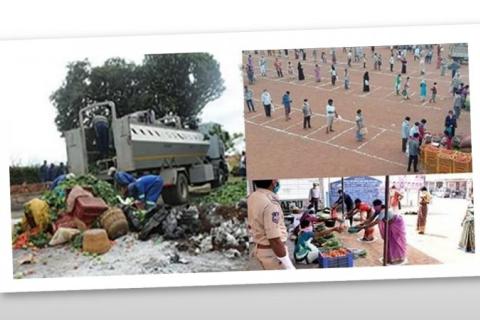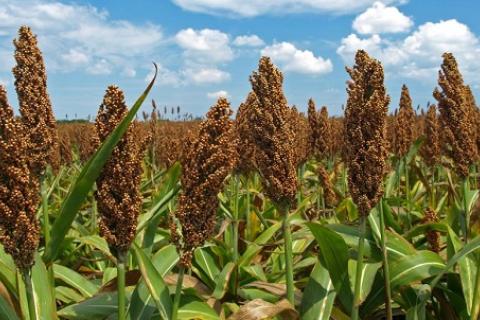
Topics and Regions
Landpages.co.ke is a medium of passing this message.
Details
Public Email
Location
Contributions
Displaying 721 - 730 of 740Zimbabwe: White farmers returning to once-seized land
HARARE, Zimbabwe - Zimbabwe’s dispossessed white farmers are trickling back to their land, this time as tenants to Black farmers, officials from the country’s governing and opposition parties claimed Monday.
In an interview with Anadolu Agency, George Makombe, a top official of the ruling Zimbabwe African National Union Patriotic Front (ZANU-PF) party and liberation war fighter, said reports of Black farmers renting out the land they repossessed from white farmers two decades ago are true.
Securing Freedom to Eat
For Zimbabwean organic farmer, Elizabeth Mpofu, access to healthy food is liberation.
Millions of people across the world go to bed hungry. Scores do not have access to nutritious food owing to an inequitable global food system focused on industrial mass food production. The food from this system is less nutritious, more expensive and less friendly to the environment.
Former Zim Deputy Prime Minister Warns South Africa Against Chaotic Land Redistribution
Former Zimbabwean deputy Prime Minister Professor Arthur Mutambara has warned South Africa against implementing a chaotic approach in the expropriation of land calling on them to learn from their northern neighbours.
Said Mutambara at a presentation at Rhodes University:
“There is a problem that you must watch out for as South Africans, land expropriation is a good idea but might be abused by the elite who take a good idea and use it as a political tool.”
South Africa’s land report: Zimbabwe lessons?
South Africa’s land panel finally produced its report at the end of July. At 144 pages it’s an impressive document, making all the right noises. South Africa, like Zimbabwe, left the land issue for too long. 25 years after freedom, at least now a serious move is being made in South Africa. But will it make a difference?
COVID-19: Highlights from Zimbabwe Farmers’ Union
- The social distance at the farms implies that farmers must limit the number of labour force-carrying an activity at a time.
Zimbabwe: 'Ex-Farmers Would Take Financial Compensation As Opposed to Govt Land Offer'
A white former Zimbabwean commercial farmer says most landowners who were dispossessed of their farms during the country's violent land grab programme post-2000 would prefer financial compensation as opposed to land offers by government.
Government recently inked a US$3,5 deal with farmer representative groups in what would see the use of the giant figure to compensate former landowners for infrastructural improvements they made on the properties.
Mugabe family amassed 24 prime farms
WHILE the principle of land reform in Zimbabwe was primarily to address the skewed legacy of colonial land ownership imbalances, the late former president Robert Mugabe and his family engaged in greedy accumulation of farms establishing themselves as the new landed aristocracy.
Owen Gagare
By the time of his death on 6 September 2019, Mugabe had became a top land baron with 24
farms in violation of his regime’s one-man-one-farm policy.
Zimbabwe agro-revival rests on mixed weather fortunes
THE weather outlook is favourable to Zimbabwe’s efforts to increase food production but economic challenges, aggravated by the coronavirus (COVID-19), could adversely affect yields.
The rainfall outlook for the November 2020-January 2021 period points to a higher probability of above-normal rainfall, which according to experts points to conducive conditions for the 2021 cereal crops.
However, the increased risk of excessive rainfall and flood damage is another lingering concern.
Seven firms apply to advise Zimbabwe on US$3.5 billion farm compensation, winner by year-end
Zimbabwe plans to select a financial adviser by Christmas to help it raise US$3.5 billion to compensate white farmers, Finance Minister Mthuli Ncube says.
Resolving the issue is seen as crucial to restoring Zimbabwe’s relations with Western nations and multilateral lenders, including the U.S. and the International Monetary Fund, which have imposed sanctions on the country’s leaders and frozen financial assistance.
Zimbabwe: Towards a National Gender-Sensitive Land Policy
The importance of a sound land administration system (LAS) cannot be over-emphasised.
This article seeks to examine the current state of the land administration system across all land-use categories in Zimbabwe, a general overview of the land administration challenges, with the aim of providing a policy proposition of how the land system can better be administered.








